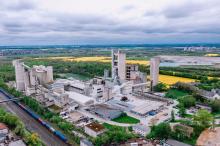
The proposed hydrogen and carbon capture and storage (CCS) project will play a critical role in the UK’s transition to net-zero greenhouse gas emissions by 2050 and the fight against climate change.
“Our involvement in HyNet North West is the next step in HeidelbergCement’s path towards industrial scaling of carbon capture technologies”, says Dr. Dominik von Achten, chairman of the HeidelbergCement managing board. “Carbon capture and utilisation or storage is a key part of our climate strategy, and we are already seeing great success with our various initiatives.”
HeidelbergCement only recently reported progress on three other CCU/S projects in Norway and Germany.
HyNet North West covers the largest concentration of advanced manufacturing and chemical production in the UK, including Hanson’s Padeswood cement plant. As a first step, a feasibility study will be conducted to provide a clear design basis and cost estimate for a capture facility at the Padeswood plant and connection to the proposed HyNet North West CO2 network and storage system. The project will reduce regional CO2 emissions by up to 10 million tonnes every year by 2030 – including up to 800,000 tonnes from the Hanson plant in Padeswood. This is the equivalent of taking four million cars off the road.
HyNet North West will deliver 80 per cent of the national hydrogen production target, 100 per cent of the national target for CCS capacity by 2030, and a hydrogen town. The HyNet North West project also includes the production, storage and distribution of low carbon hydrogen, which will decarbonise other industries whose CO2 emissions primarily come from fossil fuels. The project, led by Progressive Energy, is being developed by a consortium of regionally located partners, including Cadent, CF Fertilisers, Eni UK, Essar, INOVYN and the University of Chester, as well as Hanson.







